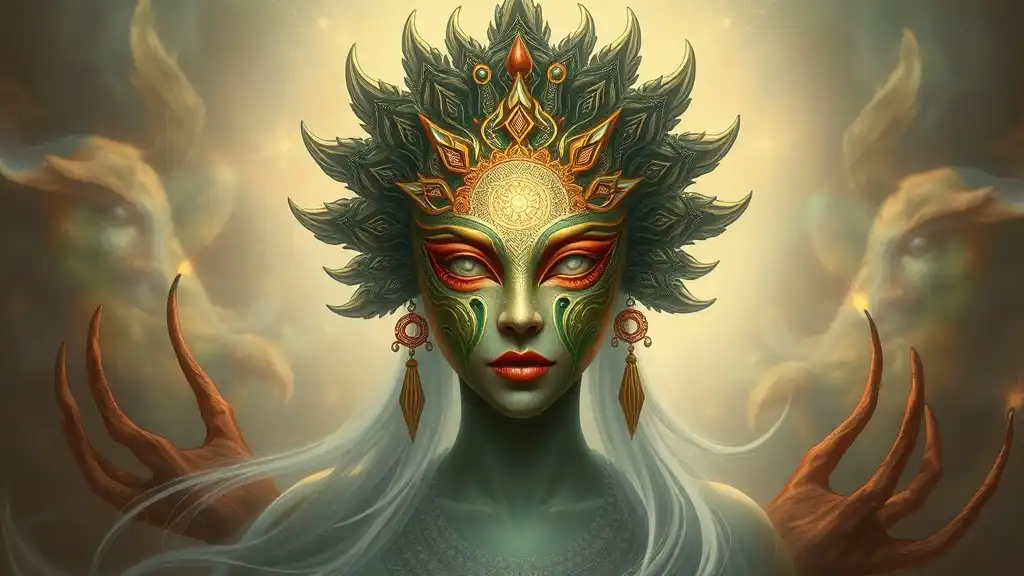In recent years, mask-wearing has become a significant aspect of daily life worldwide, transcending its physical function to embrace deeper cultural and spiritual connotations. Masks have historically been used in diverse contexts, from tribal ceremonies to theatrical performances, and now reclaiming their place in modern spirituality invites us to explore their rich tapestry of meanings.
Historical Context of Masks
Ancient Practices
Throughout history, masks have played a crucial role in various tribal rituals and ceremonies. In many indigenous cultures, masks are not merely objects; they embody the spirits of ancestors and connect wearers to the divine. They serve as conduits for transformation, allowing individuals to step into the roles of their deities or ancestral spirits, thereby blurring the lines between the physical and the spiritual realms. In this context, wearing a mask allows for a profound personal and communal experience, facilitating spiritual journeys that may result in enlightenment or healing.
Masks in Art and Theatre
In the realm of art and theatre, masks serve as powerful symbols of identity and expression. They enable performers to embody various characters, conveying a rich palette of emotions that often act as mirrors reflecting societal truths. Spiritually, masks in storytelling open pathways for connection and communication, inviting audiences into deeper narratives that resonate with the human experience. They remind us that our identities can be fluid and shaped by the roles we choose to inhabit.

The Spiritual Significance of Wearing a Mask
Masks and Identity
The spiritual practice of examining the persona is foundational when considering masks. A mask allows individuals to explore the complex dance between their true self and the identities Society has crafted for them. This journey often involves a balancing act, where the act of wearing a mask helps us navigate societal expectations while seeking authenticity. By donning a mask, one can step away from societal judgments, providing a safe space to discover, reflect upon, and express their inner selves.
Masks as Protection
Masks have long held the symbolism of protection. In many spiritual traditions, they act as metaphysical barriers that shield us from negative energies and influences. Wearing a mask provides a sense of security, allowing individuals to explore their vulnerabilities while feeling safeguarded. This spiritual shielding can extend beyond the physical realm, encouraging wearers to establish healthy boundaries in their relationships and daily interactions.
Masks and Healing
Wearing a mask can also play a pivotal role in psychological and emotional healing. Many spiritual practices emphasize the importance of visibility and invisibility in our healing journeys. By wearing a mask, individuals may find it easier to confront feelings they might have otherwise concealed. It creates a buffer that allows for exploration and healing, facilitating a deeper understanding of one’s emotional landscape. Rituals that incorporate masks for healing purposes often invoke energies of renewal and transformation, helping individuals to release past traumas.

Modern Interpretations of Mask-Wearing
Masks in Rituals and Ceremonies
In contemporary spiritual gatherings, masks are reclaimed through various practices and communal celebrations. Many rituals embrace masks to create a sense of unity and collective identity while still allowing individual expression. Festivals and group gatherings that encourage mask-wearing not only honor tradition but can also serve as modern manifestations of ancient beliefs, encouraging participants to explore their identities while connecting to a larger whole.
Masks in Personal Growth
Personal growth can flourish through the exploration of one's identity via the lens of wearing a mask. This journey can lead to self-discovery and empowerment, promoting a sense of freedom as individuals release preconceived notions of who they should be. It encourages individuals to let go of judgment, creating space for vulnerability and authenticity in personal relationships. Embracing the role of various masks fosters adaptability and invites profound insights into one’s character and place in the world.

The Duality of Masks: Concealment vs. Revelation
Masks as a Tool for Expression
At their essence, masks can be seen as tools for expression. While they often serve to conceal the wearer's true identity, they can simultaneously unveil deeper truths about oneself. The paradox of wearing a mask is that it can foster a sense of liberation. By adopting different personas, individuals may discover traits, desires, and aspirations previously hidden beneath the surface, leading to a richer understanding of their authentic self.
The Risks of Wearing a Mask
However, it’s essential to acknowledge the risks of wearing a mask as well. There can be a tendency to become disconnected from one’s true self when hiding behind an external facade. This disconnection can lead to challenges in forming genuine relationships or expressing authenticity. The ongoing practice of self-awareness becomes crucial, allowing individuals to remain grounded and to balance the duality of wearing a mask—embracing both its protective and revealing aspects.

Conclusion
As we’ve explored, the spiritual meanings associated with wearing a mask are multifaceted and profound. Masks offer a lens through which we can examine identity, navigate societal roles, and embark on journeys of healing and transformation. In a world where authenticity can sometimes feel elusive, embracing the dynamics of masks allows for deeper reflection and connection—to ourselves, to our communities, and to the greater universe around us. We invite you to reflect on your relationship with masks, acknowledging the dualities they present and the transformative power they hold in your life.



















